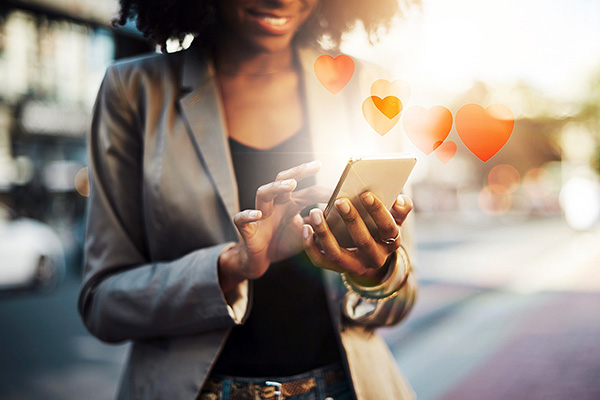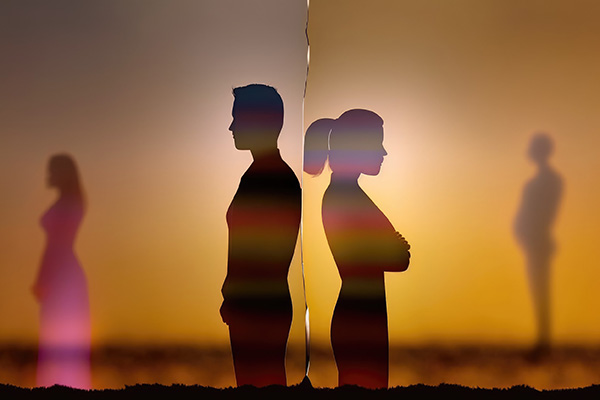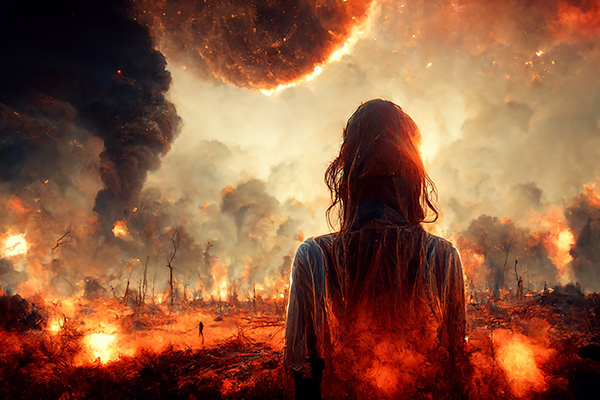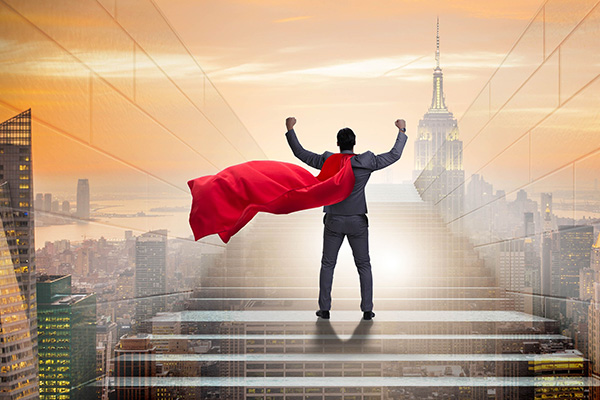social media
A Quick Guide To Safer Online Dating
 Despite widespread skepticism, I still believe that online dating is one of the best ways to meet someone special, especially for those whose lifestyle limits their ability to meet other singles in their daily lives.
Despite widespread skepticism, I still believe that online dating is one of the best ways to meet someone special, especially for those whose lifestyle limits their ability to meet other singles in their daily lives.
Statistics back up the success of online dating. According to the Pew Research Center, for example, approximately 5% of Americans who are married or in a committed relationship met their partner online.
A study by the National Academy of Sciences found that more than one-third of marriages in the U.S. begin with online dating, and these couples report slightly higher levels of happiness than couples who meet through other means. In fact, Match.com reports that only 9% of women and 2% of men find relationships in clubs or bars.
Clearly, the Internet plays a crucial role in bringing people together!
However, it’s important to realize that no form of dating is completely risk-free. Meeting strangers online always carries some risk, but there are ways to minimize these dangers and protect yourself.
The reality is that most people who engage in online dating do so safely, which is why these platforms remain popular. Still, it’s wise for online daters to be aware of the potential risks and take precautions.
I know several friends and clients who have had unsettling or even frightening experiences with men they met online. For example, one friend found herself being followed home after a date by a man on a motorcycle. She acted quickly, running several red lights to lose him and eventually pulling over in front of a police station, where he fled. Another friend escaped a potentially dangerous situation by convincing a man to let her return to a restaurant to retrieve her phone, where she asked the manager to call the police.
Do You Know If Your Partner Is Cheating?
 I often have married people call me for insight into whether their spouse is cheating on them. In some cases, I also consult with clients who are having an extramarital affair themselves.
I often have married people call me for insight into whether their spouse is cheating on them. In some cases, I also consult with clients who are having an extramarital affair themselves.
It has become increasingly common for clients to confide in me about their infidelity, revealing that while they are married, they are also dating or having sexual relationships with others outside of their marriage.
One trend I have noticed in recent years is that more women seem to be engaging in infidelity, at least among those who come to me for counseling.
What I often find particularly intriguing is that in many cases people believe, for the wrong reasons, that the person they are having an affair with is more compatible with them than their current spouse.
Despite the morally complex situations in which my clients find themselves, I make it a point not to judge them. My job is to provide the best possible insights and information to help people navigate their circumstances for their highest good; not to question their life choices.
My clients often express their appreciation for my nonjudgmental approach, noting that I don’t lecture or impose my personal opinions. This is a given for me, as it is considered essential and non-negotiable among reputable, ethical psychic advisors. Also, I haven’t walked in their shoes. Life is complex, and none of us are without flaws.
The Missed Opportunities Of Prophetic Predictions
 Psychics and mediums are mostly known only for giving personalized predictions and spiritual advice tailored to individual clients. People often come to us for help with personal issues such as relationships, career choices, and other life concerns.
Psychics and mediums are mostly known only for giving personalized predictions and spiritual advice tailored to individual clients. People often come to us for help with personal issues such as relationships, career choices, and other life concerns.
But there’s a bigger picture that doesn’t get as much attention: the role of some highly gifted psychics in making large-scale predictions that address collective challenges or foresee major events that affect everyone. These larger prophecies, such as warnings of natural disasters, economic crises, or global conflicts, are often unrecognized, overlooked, and even ridiculed.
Large-scale prophecies can have a big impact on the greater good if they were to be taken more seriously. If documented and acted upon, they can help society prepare for significant events and improve overall well-being.
In our modern world, the value of prophetic insights from today’s psychics and mediums is more relevant than ever. While prophecy may seem outdated compared to modern science and technology, these predictions can help us navigate the uncertainties and complexities of the future.
At their core, prophetic predictions are warning messages from the spirit realm, universal consciousness, the divine. They’re not random or whimsical; they’re meant to guide humanity by giving us glimpses into possible future scenarios. These visions are also not meant to interfere with our free will, but to alert us to possible outcomes so that we can take proactive steps to prevent or mitigate any negative effects.
Become A Magnet For Joy And Happiness
 Have you ever experienced such an intense level of joy after receiving wonderful news or a successful outcome that not even the most negative person could dampen your mood or ruin your day?
Have you ever experienced such an intense level of joy after receiving wonderful news or a successful outcome that not even the most negative person could dampen your mood or ruin your day?
Well, that’s the kind of energy you need to send out into the universe if you want to become a magnet for love, happiness and fulfillment.
Many people are constantly stuck in a cycle of negativity. They see the worst in every situation and project their pessimism onto everyone and everything around them.
As a psychic counselor, I’ve worked with many clients over the years who have fallen victim to the negativity of such naysayers and energy thieves – people who try to drag others down to their level to alleviate their own discomfort.
In these scenarios, I then guide my clients on how to better protect themselves energetically and maintain balance spiritually, mentally, emotionally, and in the worst cases, even physically.
They do this by creating an invisible shield that deflects the negativity. This shield sends the negative energy right back at the ‘happiness trolls,’ neutralizing their psychic attacks and preventing their pessimistic, toxic energy from affecting you.
Your life will take a major turn for the better when you realize that some people are not even aware of how their negativity affects others. Often these people have had very difficult lives or traumatic childhoods filled with anger and conflict. They are often carriers of serious levels of unresolved karmic debt, which they typically make no effort to address due to their lack of self-awareness and spiritual awareness. You cannot expect someone to break free of these karmic patterns and ancestral legacies if they are not aware that they even exist.
The Choice To Stay In Your Peace And Joy
 The other day I was sitting in a park surrounded by people. Some were sitting in chairs, looking up at the trees, seemingly in a state of pure relaxation, with no thoughts in their minds, just taking in the nature and sounds around them.
The other day I was sitting in a park surrounded by people. Some were sitting in chairs, looking up at the trees, seemingly in a state of pure relaxation, with no thoughts in their minds, just taking in the nature and sounds around them.
I felt a deep sense of peace and tranquillity, having just meditated before coming to the park. I had spread a blanket under my favourite oak tree with a book in my hand.
I looked around and saw a young family. The children were playing, throwing a ball back and forth, while the father was absorbed in his mobile phone. The mother was busy preparing a picnic, setting the table with a beautiful tablecloth. Eventually they settled down.
On the other side of the park was a lovely play area where families watched their children playing, climbing and jumping.
In the middle of the park, a group of young people were playing volleyball, being quite loud and using foul language. Their behaviour attracted everyone’s attention. The family preparing for the picnic decided to leave, put everything in their cars and drove off. Others sitting in deckchairs and some children in the play area also left.
The noisy volleyball group eventually attracted the attention of a police patrol. I overheard one of the officers reminding them of the ban on alcohol in public parks and urging them to be respectful of others, especially with small children around. Despite the warnings, they remained loud and disrespectful until they finally left.
How To Navigate The Chaos Like A Champ
 The physical life adventure we signed up for before we were born has many twists and turns. From our careers and relationships to personal health and world events.
The physical life adventure we signed up for before we were born has many twists and turns. From our careers and relationships to personal health and world events.
While these ups and downs of life and love are exactly what we came here to experience for our personal enlightenment and soul evolution, they can sometimes throw us into moments of chaos, frustration, anxiety and even instense despair.
The key to not becoming disoriented or deflated in these difficult moments is to always remember why we are here in the first place, no matter how crazy things may get. Every time we face adversity or have to overcome setbacks and obstacles, we are making progress on our amazing soul journey.
Embracing the dynamic and sometimes very challenging nature of our existence is essential to fulfilling our spiritual mission. Staying balanced in an ever-changing environment is not just a possibility – it is an exciting opportunity for self-discovery and spiritual empowerment.
Change and uncertainty are inevitable. Developing a mindset of flexibility and adaptability can help you navigate the chaos with greater ease. Surrender to the knowledge that you can’t control everything, but you can control your thoughts, mindset and reactions.Amid chaos and despair, remember: every setback is a step forward in your amazing spiritual odyssey!
Three days ago, a deer collided with my car two hours from home. It did not survive and my vehicle is no longer drivable. The hardest thing for me was the grief of killing one of God’s beautiful creatures. Why did I not see it earlier and react sooner?
